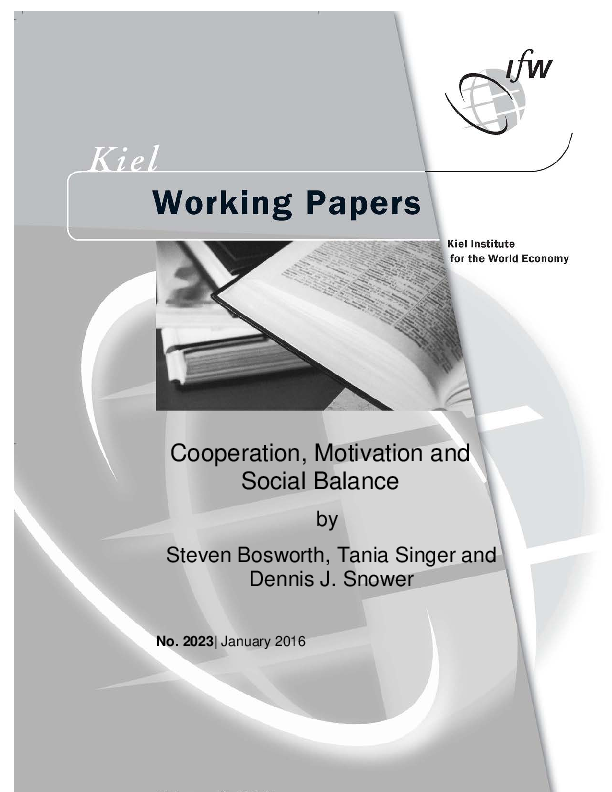Authors
Publication Date
JEL Classification
Key Words
This paper examines the reflexive interplay between individual decisions and social forces to analyze the evolution of cooperation in the presence of "multi-directedness", whereby people's preferences depend on their psychological motives. People have access to multiple, discrete motives. Different motives may be activated by different social settings. Inter-individual differences in dispositional types affect the responsiveness of people's motives to their social settings. The evolution of these dispositional types is driven by changes in the frequencies of social settings. In this context, economic policies can influence economic decisions not merely by modifying incentives operating through given preferences, but also by influencing people's motives (thereby changing their preferences) and by changing the distribution of dispositional types in the population (thereby changing their motivational responsiveness to social settings).







